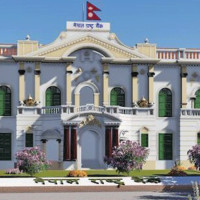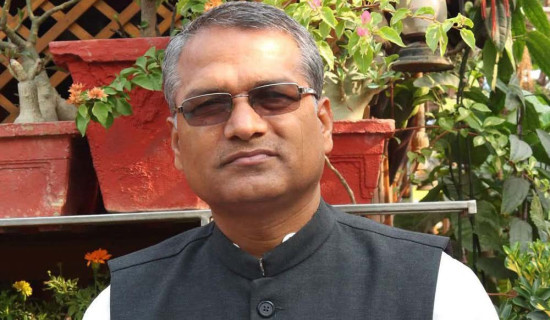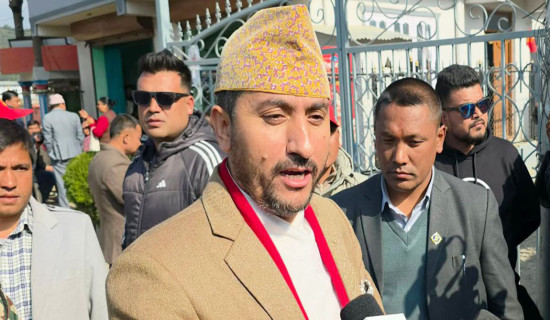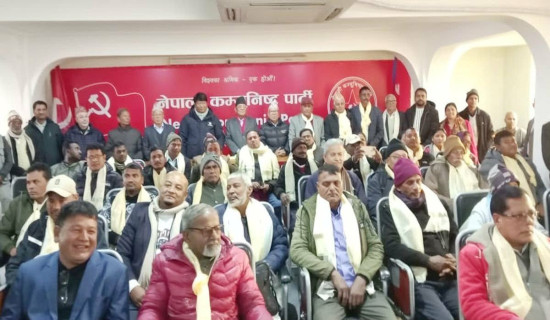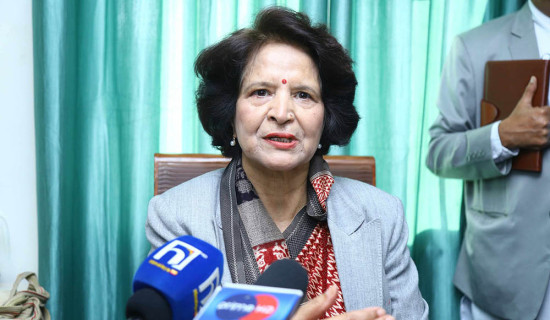- Saturday, 27 December 2025
Crux of problems in cooperatives: Micro-financialization
Sampada Koirala & Biraj Paudel 
Problems in cooperative sector have surfaced and there have been voices to intervene in the sector for its smooth operation. Although fraudulent practices and issues within certain cooperatives call for external intervention, imposing such control measures on the cooperative sector would be fundamentally flawed. The financial mismanagement and problematic activities that first surfaced in the 2000s have now escalated to a critical point. With billions of rupees deposited in cooperatives across Nepal, over 300 of which have collapsed due to corruption and mismanagement, the victims of these failures have organized protests for more than a year, seeking justice and reform to protect their investments and ensure the future integrity of the cooperative system.
Cooperatives are, principally, community-based institutions aligning with the values of self-help, self-responsibility, democracy, equity, equality, and solidarity. In an organization firmly established and functioning under such values, cooperative members believe in the ethical values of honesty, openness, social responsibility, and caring for others. Cooperatives of Nepal involved in such scandals have eroded principles and have deviated very far away from these founding values.
Victims of cooperatives and the intellectuals advocating their rights are not very wrong to demand intervention or a potent regulator like Nepal Rastra Bank on their part. While their sentiment and intentions are not wrong, they are ignorant that the cooperatives are established on members' very principles of self-control and control. Their vision of such regulated rural institutions conducting small (theoretically) financial transactions already exists, i.e., microfinance.
Micro-financialization of Cooperatives: Root to all problems
In the recent first-hand survey conducted among 53 Cooperative Victims, 69% and 37% of the respondents were Multipurpose and Saving and Credit Cooperatives depositors, respectively. Further inquiry found that those multipurpose cooperatives also focused on saving and credit transactions. While more than ten significant types of cooperatives across Nepal, like agricultural, dairy, and beekeeping cooperatives, only those involved in financial transactions failed.
In a recorded interview, the Deputy Registrar at the Department of Cooperatives, Tol Raj Upadhyaya, clarified, “Those cooperatives associated with production are not the ones to fail. Only those running solely for banking purposes are failing.” Due to the strict regulations in other institutions, Cooperatives were chosen as an easy means to pool the public’s money. As a result, some people started running cooperatives as microfinancing institutions.
Though Savings and Credit Cooperatives are, by nature, institutions providing financial services, they cannot function like Bank and Financial Institutions (BFIs) or Microfinance Institutions (MFIs). Members of the cooperatives are not merely customers; they are owners of the institution. Cooperative Act of 2074 also mandate that members must be cooperative shareholders. Cooperatives cannot provide their services to non-shareholders. Unfortunately, our survey revealed that 40 out of 53 respondents were unaware of their shareholding in the cooperatives where they had been depositing money
The principles of cooperatives, self-regulation, and members’ control failed when members were treated through BFI (or MFI). Thus, the Micro-financialization of Cooperatives is responsible for the problems faced by the Nepali Cooperative Movement in the present context.
Connecting Dots: Micro-financialization and External Intervention
As demanded, external Intervention in cooperative issues will do nothing good except further deviation from Cooperative Principles and encourage further micro-financialization. In other words, it will distance cooperatives from the concepts of self-regulation and members’ control, hampering the Cooperative Movement.
If done so, the operators will fail to realize the importance of self-control and self-regulation in cooperatives. If the cooperative movement is posed with such external intervention, it might lack such ideal cooperatives in the future, which will also be expensive for all the stakeholders.
Comparison of Urban and Rural Cooperatives:
In Our Survey, 100% of respondents mentioned that their cooperative was based in Kathmandu Valley or Urban areas. Evaluating the list of about 300 cooperatives claimed to have failed by protesters; most were based on such regions. Very few cooperatives claimed to be involved in such frauds were outside the valley.
Upadhyaya also validated this finding. He says, “It is very rare that the cooperatives run in villages by small groups of people are failing. They are the city ones.”
Cities and urban areas are considered the State’s backyard in developing countries like ours. Most regulatory initiatives are implemented in those regions before other places, and it is easier to enforce such regulations in urban-based cooperatives.
The government and the Department of Cooperative have been proactively investing in maintaining such cooperatives, as they are nearer to them. It has been difficult, nearly impossible, for the department to be so proactive in rural areas for obvious reasons. With such disproportionate attention, Rural Cooperatives have done exceptionally well compared to Urban Cooperatives. Therefore, the earlier version of external regulation failed in the case of urban cooperatives. This raises the question, “Will such external regulatory approaches resolve the whole issue?”
It depends on what one considers the real and whole issue. If the settlement of claims is the only issue, external intervention might be helpful. However, it will miserably fail to address the greater need to reinforce fundamentally strong cooperatives and principally firm cooperative movements.
Why are Rural Cooperatives not failing?
The answer to this question is not external intervention. No central authority regulates and maintains standards for such organizations in rural areas. Fundamentally strong cooperatives, with members feeling ownership of the cooperatives and being effective members, are responsible for such thriving cooperatives.
We tried to dive deep into the success stories of such cooperatives. Thus, we interviewed Ambika Hamal of Shree Panchakanya Women’s Multipurpose Cooperative Ltd., a successful women’s cooperative in Mandandeupur Municipality, Kavrepalanchowk. She has been a leading member of that cooperative for a long time. We asked her how they maintained such success in the cooperative.
“Having the immense trust of people, we feel accountable to them. Members actively participate in our activities, ensuring everything is going right in their cooperative.” She answered.
Her Cooperative has been running a Safe House for victims of domestic abuse and mentally unstable people and helped more than five individuals only last year. They frequently organize meet-ups in the name of festive celebrations, picnics, or tours. Those things keep members aware and updated about their cooperative, keeping members and operators accountable. Such members’ control is much more effective and has proven to be the ingredient for smooth functioning cooperatives.
Way Ahead
While we strongly condemn the operational interventions by external parties in cooperatives, we always encourage effective policy intervention from the government. If executed properly, the Cooperative Act of 2074 is a decent policy for the Cooperatives Sector. The government should focus on effectively implementing such policies for intervention instead of planning for a central authority like NRB to be used for the BFIs.
Secondly, the government and operators should focus on creating active and aware members rather than mere customers depositing for high interest rates. If members are aware enough, they will significantly and ultimately contribute to stopping the micro-financialization of cooperatives. Increasing Cooperative Literacy will increase members' accountability towards the institution, making the operators accountable and strengthening internal control. Therefore, robust self-regulation and active member control are the only ways to proceed.
(Both Koirala and Paudel are teenagers and high school graduates, Koirala from Kathmandu Model College while Paudel is from Global College of Management.)





-square-thumb.jpg)


